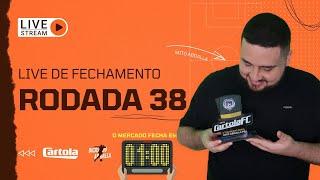Комментарии:

How much it will cost for a study program?
Ответить
I think of у меня as "of mine" so, у меня ест = of mine there is
Ответить
Hola
Gracias
I believe Свои is my own your own etc
Slightly different meaning and use from my your etc

YT just fed me your channel. When you got to хорошо vs хороший I thought, "That's a weird way to explain it." With я, у меня, & мне my first response was, "WTF?! No!" Then I thought about it and realized that if a person is a native English speaker who doesn't actually know English grammar ... your explanation makes perfect sense. So ... Congratulations! You did a better job than I would've.
Ответить
Hello friends! How are you?
Привет Друзья! Как дела?
Privyet druz'ya! Kak dela?
★
My name is Fedor and Russian is full of these similar words that mean a similar thing, but they're slightly different. And for you guys as learners it's impossible to know when to use which, what's the proper context for them, what they truly mean and what their true difference is. So today we're going to take a look at five pairs of words that mean a similar thing but yet they are very very different.
1.
Here
Тут
Tut
Here
Здесь
Zdyes'
We've made a video about “Тут”[Tut] and “Здесь “[Zdyes']
before, and still about every single day I go in the comments
section and I see comments about “Тут”[Tut] and “Здесь “[Zdyes'].
And both these words are pretty much interchangeable.
There are not a lot of cases where you would use “Тут”[Tut] versus “Здесь “[Zdyes']. Let's say I'm in a big house and my friend is looking for me right and he is asking me : “Hey where are you?”.
I can say :
♦
I am here.
Я тут.
YA tut.
I can also say:
♦
I am here
Я здесь
YA zdyes'
➟★
But “Тут [Tut] “ is going to be a slight difference. With “Тут [Tut] “ is that it is going to be where you are or like over here.
“Здесь [Zdyes']” it's mostly like okay it can be around ; around this room. But “Тут [Tut] “ is a bit closer to your where you are.
“Здесь [Zdyes']” is going to be a bit further like distance. I guess, if you're thinking about the distance around us, “Здесь [Zdyes']” is going to be slightly bigger; only slightly. And also when it comes to the style of language “Здесь [Zdyes']” is going to be more neutral. It's going to be more like universal word.
Well “Тут [Tut] “ is mostly conversational. You wouldn't see it in an official document, or in some formal speech or something like that.

2.
To speak/To talk [imperfective verb-process]
Говорить
Gavarit'
To speak [Perfective verb=done action]
Поговорить
Pagavarit'
➟★
And we see this “Пo” [Po] in the beginning and in fact it's not just
with this verb, there's other ones, such as:
Идти [Idti]= to go [Imperfective verb]
Пойти [Payti]= to go [Perfective verb]
Есть [Yest' ]= There is
Поесть [Payest']= To eat
★
When we add this little “Пo” [Po] to it. Why do we do that? What's the point of this ?
Let’s go back to Говорить [Gavarit' ] and Поговорить [Pagavarit' ].
To speak/To talk [imperfective verb-process]
Говорить
Gavarit'
For example: “ I was talking” /I was speaking.
To speak [Perfective verb=done action]
Поговорить
Pagavarit'
For example: I talked/I spoke.
★
The reason why we add this По[po] and sometimes it's another prefix, but typically it's “По”, is that in Russian we have a thing called aspects.
And in Russian would separate between what we're talking about a simple fact versus talking about a process. So Говорить [Gavarit' ]
is going to be imperfective aspect, and it is going to be talking
about a process; similar to in English :”I was talking/ I was speaking. Whereas Поговорить [Pagavarit' ] is going to be a perfective aspect. And in English we would say : “I talk or I talked” . so it's not going to be a process anymore. It's going to be talking about a fact. So the only difference between these two is the aspect and our understanding of the action. Technically it is going to be the same exact verb with the same exact meaning. However the difference is that one is
going to be talking about a process {I was talking} versus {I talked}.
So, that's the main difference between them.
I can say:
♦
I was talking on the phone when you came in.
Я говорил по телефону, когда ты вошёл.
YA gavaril pa teelefonu, kagda ty vashol.
➟★
So I was in the process of doing something. I was in the process of
talking when you came in.

Or I can just
simply say:
♦
I talked to my brother.
Я поговорил с братом.
YA pagavaril s bratam.
➟★
That's it; it's a it's a sufficient sentence by itself and we don't have
to add any more context. “ I talked to my brother “. That's it, period done. So that's the only difference between Говорить [Gavarit' ]
and Поговорить [Pagavarit' ] is their aspect.
3.
Well, Good
[or as an adverb to describe an action]
Хорошо
Kharasho
Good [adjective]
Хороший
Kharoshiy
Both mean “Good” but they have one difference.
The difference between them is that Хорошо [kharasho]
is going to describe an action, whereas Хороший [Kharoshiy]
is going to describe an object.
I can say :
♦
I worked well/good.
Я хорошо поработал.
YA kharasho parabotal.
So Хорошо [kharasho] means “well or good” and it's gonna be
describing an action. Whereas Хороший [Kharoshiy]
is going to describe an object.
For example:
♦
I have a good phone.
У меня хороший телефон.
U meenya kharoshiy teelefon.
➟★
So “Хороший [Kharoshiy]” is going to describe a phone.
It is going to be an adjective.
★
Moving back to Хорошо [kharasho] and Хороший [Kharoshiy]
it's not the only difference between them.
Хорошо [kharasho] is also used to say “Okay” or “All right”.
If you say : “Hey Fedor come to this meeting at 5 p.m”. I can say
Хорошо [kharasho] , Okay; all right. So Хорошо [kharasho] is used in this adverb form just to simply say “Ok”.
Also it's going to be used to describe feelings.
I can say:
♦
I feel well.
Lit: It feels good to me.
Мне сейчас хорошо.
Mnye seychas kharasho.
➟★
So Хорошо [kharasho] is going to be more universal or more widely
used compared to just simply Хороший [Kharoshiy].

4.
Я [YA]= I
У меня [U meenya]= I have
Мне [Mnye]= To me
➟★
Technically when you translate it to English they will all mean “I”,
but what's the difference between them and when do we use each?
Я [YA]= I
Is used whenever we do the action. Whenever we are the subject of the
Sentence.
I can say:
♦
I ate at eight[8] am. [in the morning]
Я поел в восемь утра.
YA payel [v]* voseem' utra.
➟★
I did something; I did the action. The preposition [B/ve/=in] become silent before another consonant letter [B]. Therefore:
YA payel voseem' utra.
У меня [U meenya]= I have
“У меня [U meenya]” we use whenever we talk about our possessions.
I can say:
[This is the one that we already had]
♦
I have a good phone.
У меня хороший телефон.
U meenya kharoshiy teelefon.
➟★
У меня[U meenya] will have the meaning of “I have”.
Another meaning of “У меня[U meenya]” is that, for example:
♦
We are gathering at my home.
Мы собираемся у меня дома.
My sabirayemsa u meenya doma.
➟★
Which means that we are getting together at my house/at mine.
So we can talk about our possessions with that and talking about
at our place.

Мне [Mnye]= To me
Мне [Mnye] means “To me”.
Can be used to talk about emotions. Like we already had, for example:
♦
I feel good.
LIT: It is good to me.
Мне хорошо.
Mnye kharasho.
★
Or maybe more literal would be:
♦
He gifted a gift to me.
Он подарил мне подарок.
On padaril mnye padarak.
➟★
So back to:
Я [YA]= I
У меня [U meenya]= I have
Мне [Mnye]= To me
All of them mean or refer to “I”.
Я [YA]= I- when we do something.
У меня [U meenya]= I have--means MINE.
Мне [Mnye]= To me
➟★
And all of them have , multiple usages sometimes with phrases
as well. So the best thing is just simply to look up into individual words like that. See the context and understanding them better.
5.
My/Mine
Мой
Moy
Mine
Свой
Svoy
Both kind of mean “Mine”. But what’s their difference?
Мой [Moy] is always going to mean “My”, regardless of the context.
For example:
♦
This is my house./my home.
Этo мой дoм.
Eta moy dom.

★
But “Свой “[Svoy] will have meanings of:
My, your, their, his, hers. So it can change the meanings.
But how is that possible?
“Свой “[Svoy]” is going to carry the meaning of the subject.
So whenever we change the subject, we change the meaning of
“Свой “[Svoy]” as well.
For example,
♦
I took my phone.
Я взял свой телефон.
YA vzyal svoy teelefon.
➟★
Because subject is “Я [YA]{I}”, “Свой “[Svoy]” is going to mean
“My”.
Let me change this to:
♦
You took your phone.
Ты взял свой телефон.
Ty vzyal svoy teelefon.
➟★
Because we changed the subject from “I” to “you”. Cвой[svoy] changed the meaning from “mine” to “yours”.
Now we have Cвой [svoy] we have to look at the subject and see who is doing the action, and that's what Cвой [svoy ]is going to kind of copy the meaning off. So “Cвой “ [svoy] can have meanings of my, you’re, her, his, their etc. Cвой [svoy] can have multiple meanings while Мой[Moy] will always stay “my”.
That's it. I hope now I've cleared some confusion uh with these
words with these pairs. Make sure to check out our “Be Fluent learning
Camp” . If you want to speak better I can guarantee that you will.
If you have a fear of speaking to your family and friends, we will take care of that right here with this camp. And yeah see you all
There!

THE OCCUPIERS THINK WE'RE WEAK. A BROKEN PEOPLE. THEY THINK WE'RE SOME KIND OF SCARED PUPPIES THAT WILL ROLL OVER AND DIE WITHOUT A FIGHT! HOW WRONG THEY ARE! WE ARE WILLING TO FIGHT UNTIL THE LAST TRENCHES ARE COLLAPSED AND THE LAST TANKS AR SILENCED. WE WILL FIGHT THEM ON THE STREETS UNTIL THE LAST SHOT IS FIRED, AND EVEN IF THERE'S NO MORE AMMUNITION, WE WILL USE OUR STONES FROM OUR STREETS AND BUILDINGS TO SMASH IN THEIR HEADS! WE WILL FIGHT THEM IN THE ALLIES UNTIL OUR FISTS ARE BLOODIED AND BRUISED AND OUR LAST BAYONET'S ARE SHATTERED ! AND IF WE FIND OURSELVES SURROUNDED AND DISARMED, WOUNDED AND WITHOUT HOPE, WE WILL RAISE OUR HEADS HIGH IN DEFIANCE AND SPIT IN THEIR FACES! BUT WE WILL FIGHT TO PROTECT AND WE WILL NEVER SURRENDER! SLAVA UKRAINE!!
Ответить
Can you make a video on the explanation of какого and какму
Ответить
Regarding the difference between тут and здесь; something my mind immediately goes to is a line from Septimus Signus in Skyrim when you ask about the whereabout of the elder scroll. He tells you: “Here.” as in here on this plane of existence.
That's how I differentiate between тут and здесь, I use здесь as a slightly more vague “Within here”. While I use тут for more immediate things.

So are свой interchangeable with all the other possessive pronouns? Like can I say either я взял мой телефон or я взял свой телефон?
Ответить
Тут и здесь - оба слова пришли из праславянского языка и являются синонимами. Со временем вариант "тут" стал разговорным, а "здесь" - литературным. Вот и вся разница.
Ответить
Right here vs. around here
Ответить
Thanks for explaining. I just discovered ur channel and I love it, subscribed already! Greetings from Poland 😍
Ответить
These videos are helping me so much!! You make it easy to understand. You are a wonderful teacher. Thank you!!!
Ответить
Another way I've learned it is
мой, твой, etc. is justyour regular possessive pronouns: mine, yours [my, your], etc.), but свой carries a meaning of "one's own". It's a bane of English wit hsentences like "He took his phone out". Who is the second "he"? Whose phone? His OWN, or somebody else's?
Consider this:
"Jake and Paul were talking at home, when suddenly, Paul lifted his phone from the table."
Now, we IMPLY that it was Paul's OWN phone he lifted, but grammatically, it could have very well been Jake's phone. This doesn't happen in Russian, because Павел взял СВОЙ телефон means he lifted/took his OWN phone, while Павел взял ЕГО телефон means Paul took Jake's. Sure enough, a bit strange to wrap your head around, as an English speaker but just as I've shown here, you can uye "HIS/HER OWN" in English as well, to put emphasis on or clarify the thing.
I'm not a native English speaker, my mother tongue is Hungarian and we, too, have this same distinction (övé/sajátja), but we, too, only use it for the sake of clarity, so while the logic was there, it took me a few hours getting used to using both of them actively in Russian.

Никогда не думал, что есть разница между тут и здесь😂
Ответить
екарный бабай
Ответить
Он жулик. Он носителем русскаго языка имеет быти.
Ответить
Тут такое дело. Как я поговорил, ты забыл у меня мой телефон. И теперь меня жена здесь нехороший, что твоя жена сейчас меня под мат кладет.
Ответить
Я не могу понять, автор американец с хорошим русским акцентом или русский с хорошим американским акцентом.
Ответить
Почему англичане не заимели местоимение "свой"? У шведов, кстати это слово есть "sin" (свой или своя) "sitt" (своё) "sina" (свои).
Ответить
I have been subscribed to your channel since 2020 now I can speak Russian, я уже говорю по-русски
Ответить
So is "Она не знала, что её мать больна." wrong? Should it be CBOй
Ответить
у меня vs моего? And why have a word like свой but also have words like мой and твой? Also, difference between пробовал и пытался?
Ответить
На счёт говорить и поговорить. Очень полезно показать на примере. "Мы с тобой долго говорили, но про этот вопрос так и не поговорили." Или чуть из другого - "Слушал, но не слышал". Тоже часто употребляется.
Ответить
Заметил, что русские настолько продивнуты, что изучают свой язык на английском
Ответить
I sometimes confuse the words "тут" and "там".
Ответить
Мне это видео кажется немного неполным. Например, в обсуждении слов совершённого vs несовершённого действия (говорить - поговорить, есть - поесть) было бы хорошо ещё добавить отличие между "поговорить" и "сказать", "поесть" и "съесть".
На счёт "хорошо vs хороший" всё гораздо проще: "хорошо" это наречие, а "хороший" - прилагательное.
Ещё хотелось бы увидеть здесь оъяснение значения слова "свой" по отношению к человеку на примере законченной фразы "я/он свой" (например "Не стрелять! Свои!").

"Мой" is also a verb in the imperative mood. "Мой" means Wash! Why u didn't mention that?
Ответить
Про тут и здесь я сперва даже не задумывалась) По моим наблюдениям тут - это больше как указательное. Например, когда ты пальцем показываешь на что-то ближайшее к тебе, оно более применимо, чем здесь. Это как указание и одновременно расстояние. Тут - близко, там - далеко, вон там - еще где-то делеко, вот тут - конкретное место, недалеко от тебя. А здесь - это больше описание текущего места в целом, чем указание на него.
Ответить
Говорить - поговорить - обговорить --> увеличиваем сложность :)
Ответить
there many things about the russian language i love, & Cвой the word is one of them
Ответить
Бог.
Ответить
Hahahaha, I wrote the word брать instead of брат, Lol! My friend let me know. Thank you for breaking down and explaining the differences of these phrases.
Ответить
I honestly love "свой" - it's so versatile.
As an idea for you, maybe you could do a video covering the different words for "her". I think I basically understand when to use each one; at least most of the time. But "её" and "ей" are a little confusing, since they seem to have the same usage. So when to use one over the other, and why.
Thank you for the video, Fedor, as always.

So how would I say "I took your phone"
Ответить
So good! Helped me a lot!
Ответить
Your videos are super valuable!
Ответить
The most confusing world for me was взрослых. Took me a very long time to learn how to pronounce it
Ответить
so interesting. in spanish, verbs have a morphological aspect as well.
Ответить
I was looking for an address and my friend said "TYT " ,here it is ,or which door do you go in ,TYT
Ответить
I still have a question about Svoi though. Maybe this is a stupid question. When to use Svoi versus tvoi and vash?
Ответить
А нахуя это вообще понимать? Все суть поймут, хоть ты скажи "тут", хоть "здесь". Мне кажется в русском языке есть правила поважнее
Ответить
This is very interesting. Perfect and imperfect is distinguished with a prefix on the verb creating a different verb vs a different tense.
Ответить
damn bro u forgot сюда
Ответить
тут же только русские тусуются, кому это всё нужно?
Ответить


























